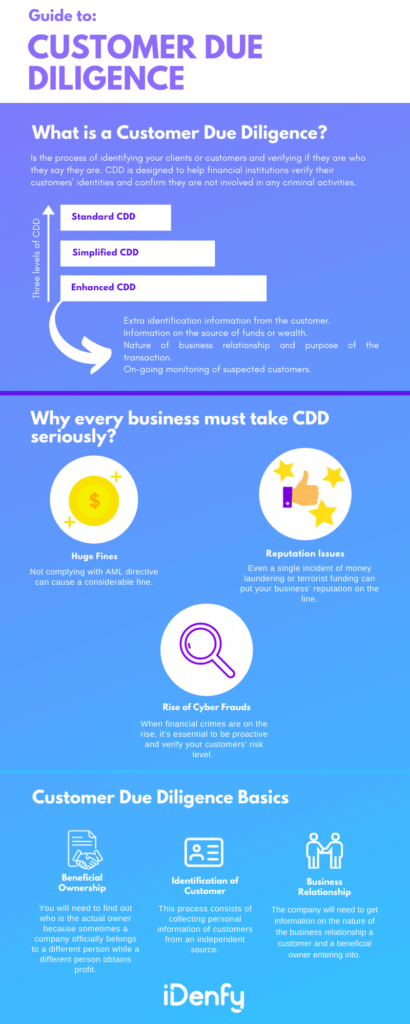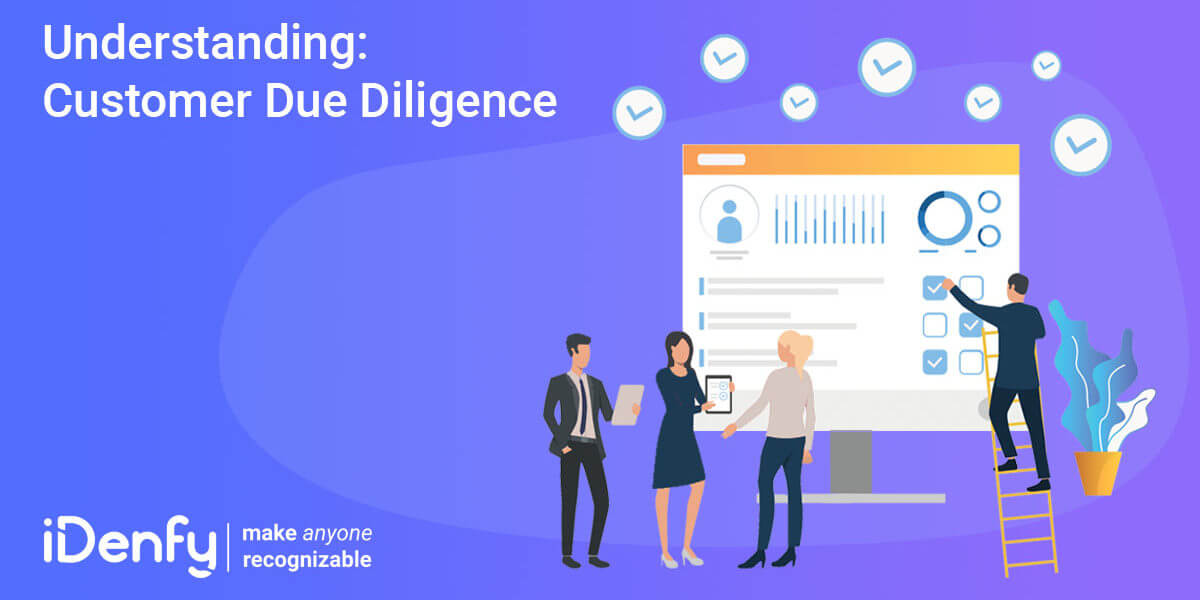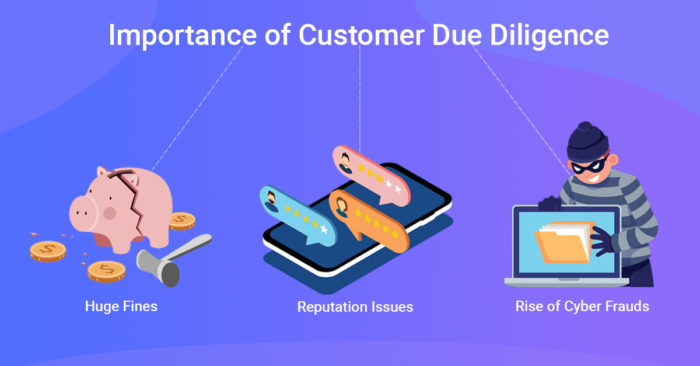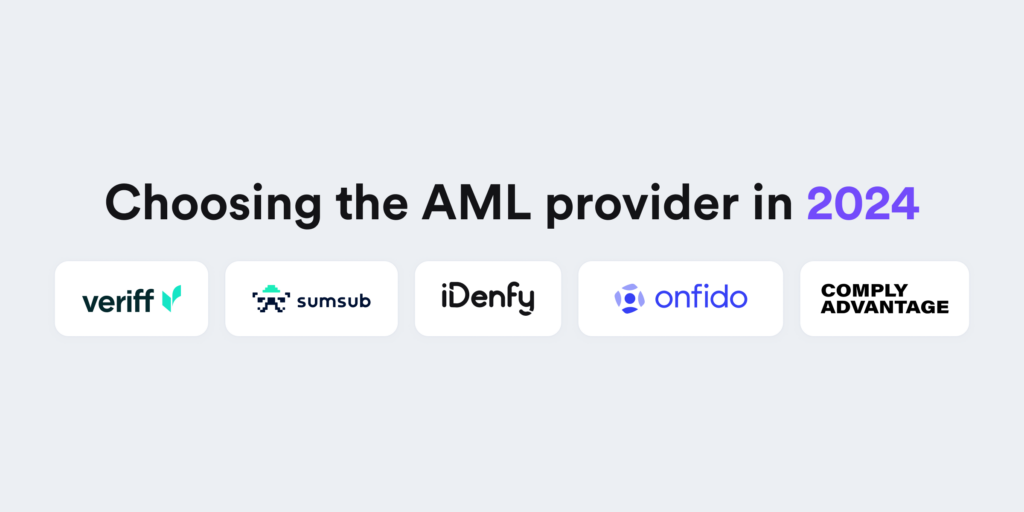To keep a check on terrorist funding and money laundering, legal bodies worldwide are putting pressure on e-businesses, which are closely tied to the financial industry, to improve their Customer Due Diligence programs.
According to regulatory authorities, Customer Due Diligence (CDD) is an ideal way to manage your risks and protect your business against nefarious activities. In this post, we will help you answer these questions: Why is CDD essential? When is it required? And much more.
However, before that, let’s find out what exactly it is.
Verify customers identity within 15 seconds. Schedule a free identity verification demo here.
What is Customer Due Diligence?
Customer Due Diligence is the process of identifying your clients or customers and verifying if they are who they say they are. CDD is designed to help financial institutions verify their customers’ identities and confirm they are not involved in any criminal activities.
In simple terms, Customer Due Diligence is the act of conducting a customer’s background checks to make sure they are risk-free before on-boarding them. Generally, the process involves obtaining a customer’s name and a government-issued ID that confirms the person’s identity, residential address, and date of birth.
There are three levels of Customer Due Diligence:
1. Standard CDD
It involves identifying customers and verifying their identities based on a reliable, independent source like a government-issued ID document.
2. Simplified CDD
This process can be applied if a risk assessment indicates a low risk of money laundering. It involves identifying a customer, but there is no need to verify the customer’s identity.
3. Enhanced CDD
This CDD level is applied when the risk of money laundering is high. For example, if the person is politically exposed. This type of due diligence process includes obtaining:
- Extra identification information from the customer.
- Information on the source of funds or wealth.
- Nature of business relationship and purpose of the transaction.
- On-going monitoring of suspected customers.
Nowadays, financial institutes want to make extra checks on their customers; therefore, they follow enhanced customer due diligence. Let’s take a look at why CDD is essential in modern times.
Importance of CDD
According to Forbes, some of the world’s major financial institutions spend up to $500 million annually on Customer Due Diligence and KYC to prevent money laundering and other financial crimes. According to a report, money laundering affects 2 to 5% of global GDP annually. Conducting due diligence can be an excellent preventive measure to reduce the risk of such financial crimes.
Fraud detection and prevention service from market leaders. Schedule a free demo here.
Here are some reasons why every business must take customer due diligence seriously:
Huge Fines
Not complying with anti-money laundering (AML) regulations can cause considerable fines. The year 2019 was a record year for global anti-money laundering fines. From January to April 2019, authorities had dispensed around $7.7 billion in AML fines globally. This year FCA charged £37,805,400 fine on Commerzbank London for violating anti-money laundering directives.
Rise of Cyber Frauds
In today’s scenario, when financial crimes are on the rise, it’s essential to be proactive and verify your customers’ risk level. It will help you combat financial criminal acts and ensure the safety of your assets.
Reputational Issues
Not bringing customer due diligence into practice can cause reputation issues as well. Don’t forget that even a single incident of money laundering or terrorist funding can put your business’ reputation on the line.
What is Enhanced Due Diligence (EDD)?
Enhance Due Diligence is a part of the KYC process that financial institutions condition to identify and verify customers. It is similar to CDD, but it provides a sizeable probe of prospective business partnerships while highlighting the risks that CDD can’t detect.
What is the difference between CDD and EDD?
Both processes have the same objective: to successfully identify customers and verify their identity to avoid discrepancies. But CDD follows less strict verification protocols that involve acquiring your customer’s identity and related details to assess their risk category.
On the other hand, EDD is much stricter in conducting verification that happens when a customer falls under a high-risk category through the LYC risk rating system.
Ensure your customers are real. Schedule a free demo here.
When is CDD Required?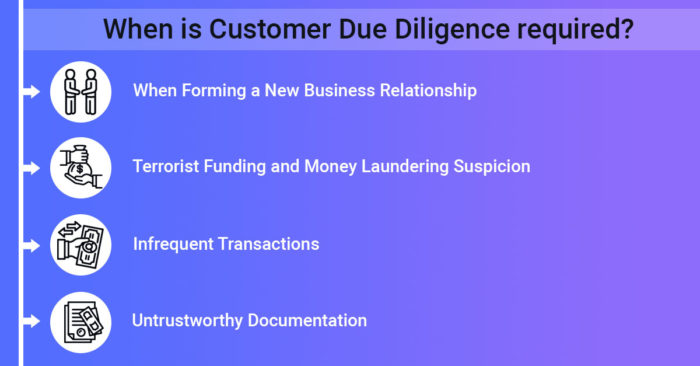
There are plenty of situations when a financial institute must carry out the Customer Due Diligence (CDD) and Know Your Customer (KYC) process. Some major ones include:
When Forming a New Business Relationship
Suppose you’re planning to form a new business relationship. In that case, you must conduct due diligence to ensure that the firm or person you’re dealing with is not indulged in any illegal activities and has a clear record.
Terrorist Funding and Money Laundering Suspicion
If you’re dealing with a customer suspected to be involved in terrorist funding or money laundering, you must implement Customer Due Diligence checks.
Infrequent Transactions
Infrequent transactions over a certain threshold might be signs of financial crime. If you notice something like that, you must perform due diligence.
Untrustworthy Documentation
If you doubt that the identification documents submitted by your customers are inadequate or unreliable, you should immediately apply for the CDD inspection.
How Can You Conduct Proper CDD with Technology and Expertise?
As technology advances, cybercriminals are trying new techniques to execute financial crimes. Therefore, you can’t rely on conventional methods to validate your customers’ identity to prevent terrorist funding and money laundering.
Here are some pointers:
- An effective CDD measure should be built on a combination of technology and expertise. Nowadays, every financial insitution should be ready to take an innovative and flexible approach to conduct proper Customer Due Diligence.
- Luckily, there are identity verification solution providers that can help you take that approach. iDenfy offers an identity verification solution to conduct proper screening of customers before they are on-boarded.
- iDenfy turns a smart device into a face recognition and ID scanning tool. That makes it easier to capture and verify the ID to meet AML and KYC directives. Our ID detection can identify 1300 types of documents from 200 countries and territories.
To meet AML compliance regulations, iDenfy can help you check the government and the Interpol databases and verify if an individual is valid to proceed with financial operations.
If you want to know more about the service or want to see a demo, don’t hesitate to book a meeting with us.
